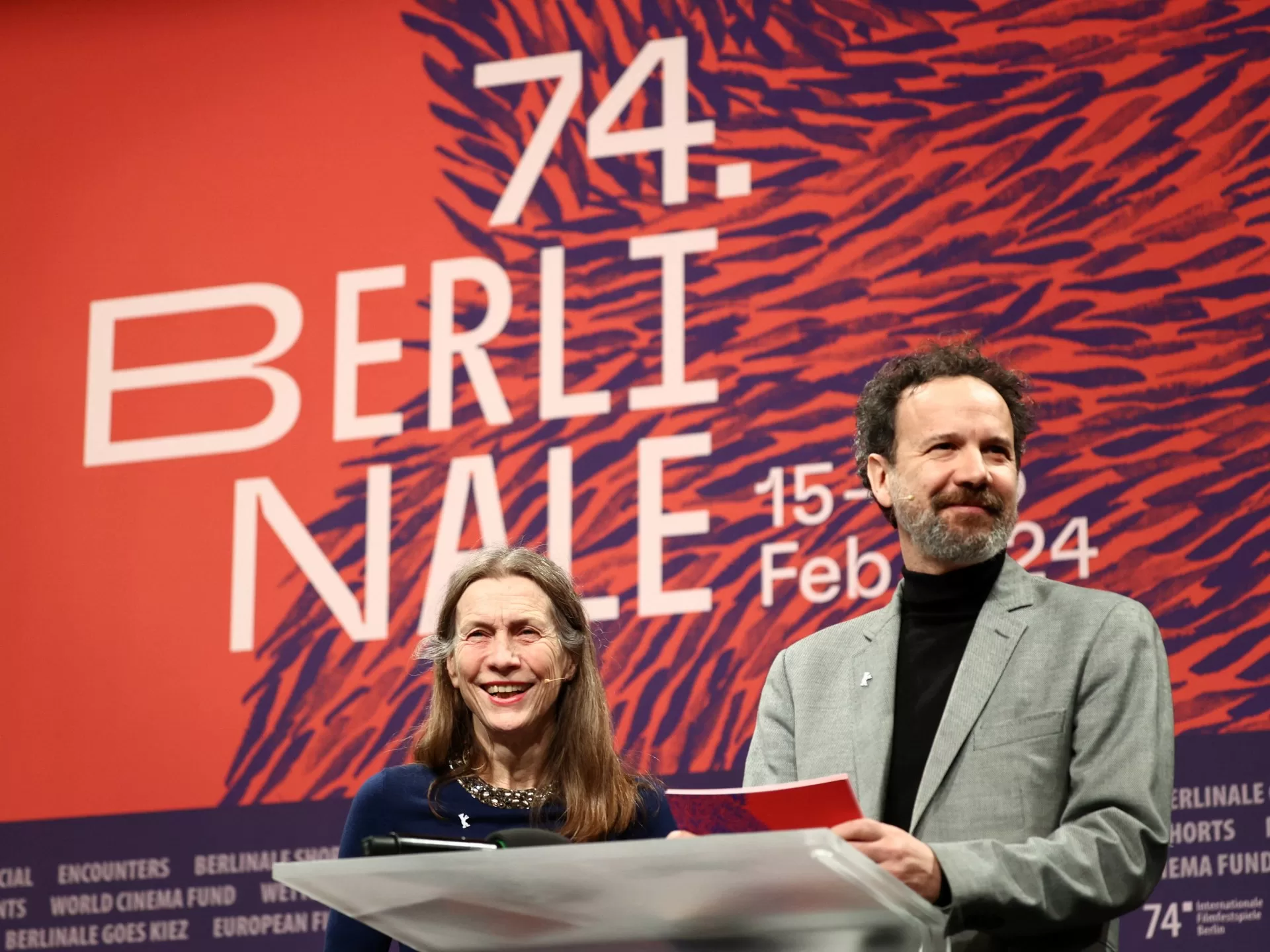Two elected members of Alternative for Germany (AfD) have accepted the offer to attend the February 15 event – Berlin state chairwoman Kristin Brinker and her deputy, Roland Briller.
More than 200 film professionals and culture workers have signed an open letter denouncing the move, calling on festival organisers to “rescind and reconsider these offensive and insensitive invitations”.
“We don’t believe the opening ceremony can be considered a safe place for Jews, women, members of the BIPOC, LGBTI+, disabled, Roma and Sinti, or Jehovah’s Witness communities, who, among others, faced persecution and genocide at the hands of another far-right, national-conservative movement in Germany,” the letter seen by Al Jazeera said.
Among the signatories are the UK-based writer and programmer Jemma Desai, celebrated Palestinian British filmmaker Saeed Taji Farouky, and Konstantina Levi, the founder of a Berlin-based studio.
The 10-day Berlinale festival, which receives some state funds, is one of the global film industry’s most important events. It will showcase 239 films this year and usually attracts tens of thousands of cinephiles.
Oscar-winning actress Lupita Nyong’o is set to preside over the jury, which includes the German director Christian Petzold, Hong Kong’s Ann Hui and the Spanish filmmaker Albert Serra.
The festival said its decision to include far-right politicians was bureaucratic as it denounced their ideology and suggested they were not “welcome”.
“Both the Federal government Commissioner for Culture and Media and the Berlin Senate receive invitation quotas for the Berlinale opening, which are allocated to the elected members,” it said, adding, that it was against this background that the AfD representatives were invited.
“People – including elected representatives – who act contrary to democratic values are not welcome at the Berlinale”.
Posting on social media, Berlinale outlined the festival’s intention to express this “clearly and empathetically” in a letter to the AfD representatives.
On Monday, artist and director Lawrence Lek withdrew from an artist development scheme of the film festival citing the invitations.
“AfD are nationalist, antisemitic, Islamophobic, anti-immigrant climate change deniers and I cannot fathom sharing the same space as them,” he said in a social media post.
“Berlinale’s response that their protocol is to invite democratically elected politicians is wholly inadequate. I cannot participate in a film festival whose organisers follow an old, outdated script.”
The scandal adds to a growing sense of crisis in Germany.
It coincides with a swell of demonstrations against the far right and separately, a high-profile boycott campaign of state-funded cultural institutions over the country’s pro-Israel position as war rages in Gaza.
“I hope that multiculturalism will be the norm one day. For now, I must call out the widespread Islamophobia that pervades discussions on Palestine in the media, especially in Germany, the UK, and the USA,” said Lawrence Lek.
Dror Dayan, a German-Israeli filmmaker who is sympathetic to the pro-Palestine cause, said, “Normalising fascism is a choice, and the Berlinale has made its decision.”
Extending a hand to far-right figures “exposes the hypocrisy at the heart of German liberal so-called ‘antifacism’”.
“While Germany’s political parties pay lip service to the ‘firewall’ between them and the AfD, their actual policies are often not much different than the AfD’s, and the Berlinale is an example of how the AfD is not ‘firewalled’ in any meaningful shape or form,” he said.
In a sign of heightened tensions, the two ongoing protest movements have recently clashed.
Some of Germany’s anti-far-right protesters reportedly rejected pro-Palestinian demonstrators at a recent rally.
“The fact that pro-Palestinian demonstrators were shut out and even attacked during demonstrations against the AfD just goes to show how little German society is aware, or wants to be aware, of this connection and the risk it poses to migrants and minorities in Germany,” said Dayan.
Berlinale is the latest German cultural institute to face controversy in recent months.
Since Israel’s war in Gaza began in early October, several international artists have been criticised by German organisations for their pro-Palestinian activism, while others have had invitations pulled and events cancelled.
